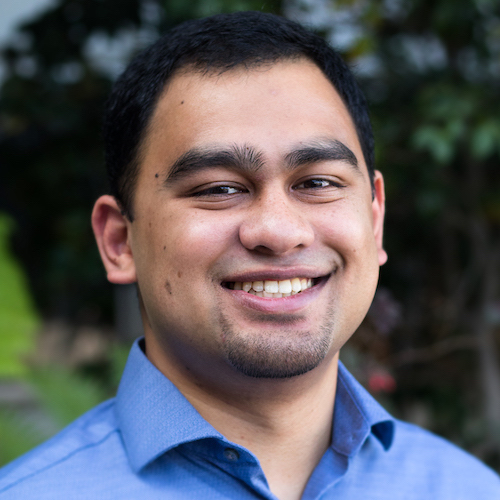Aditya Jayashankar PhD ’24
Hometown: Dubai, United Arab Emirates
Program: PhD in Occupational Science, Class of 2024
What brought you to occupational therapy?
In 2017, I worked as a junior researcher in a MRI lab at NIMHANS in India. We had a volunteer RA who wanted to learn fMRI, and I was her mentor. She had just completed her OT undergraduate studies, so I learned quite a bit about OT and OS through discussions with her, especially how it may apply to the autistic population and neuroscience research philosophy. That was the start of my interest in the philosophy of OT and OS.
Why did you decide to pursue your PhD in Occupational Science?
I had just learned of OS when applying for PhD programs, and I believed studying and researching neuroscience through OS would provide me with a unique perspective and research philosophy to carry forward in my future endeavors. I hoped that learning OS would attune my research questions to the OS humanistic philosophy instead of a traditional biological approach. Also, I admired the work done in Dr. Aziz-Zadeh’s lab and I really wanted to work with her. So, I felt that the OS PhD program was a perfect fit for me.
What was the most rewarding part of being in the PhD program?
I think it would have to be the research immersion. I have truly loved working at the Center for the Neuroscience of Embodied Cognition (CeNEC) with colleagues past and present. The environment has been very nurturing and educational. This experience is more than I could have hoped for. My favorite moment was when a participant felt close enough to our research team, that during his break he shared his comics with us and anointed us as “The Squad”.
What are you are doing now (or next)?
I have accepted a postdoctoral researcher position at Tufts University, studying the effects of experiences with racial discrimination on the brain, physical and mental health. In the long term, I hope to run my own lab investigating the embodied cognition in youth and hopefully pursue my passion project: the study of how video games can influence embodied cognition and the therapeutic benefits of gaming and its modalities (like VR and AR).
⋯






